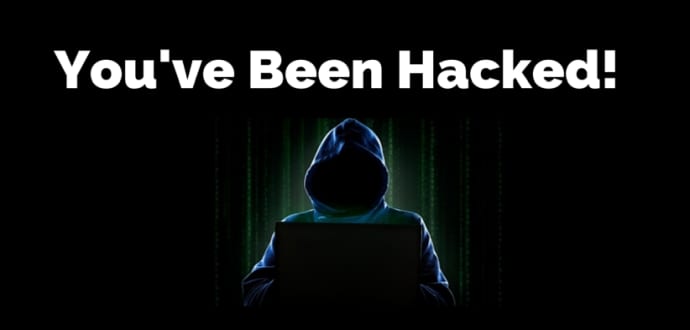Hackers dont typically tell their victims that theyve been hacked.
Normally, hackers gain entry to computers of their victims without their knowledge and carry out their work.
That way, they can come back another time to see what else they can do or find.

In such a scenario, it is very difficult to find out if your box has been hacked.
Depending on your operating system, it might simply mean clicking on a Restore button.
However, once a computer is compromised, it can never be fully trusted again.

Note: a complete restore of the system is always a better option, risk-wise.
Normally, you will be tricked by a malicious fake antivirus warning message luring you to buy their product.
There, they ask you for your credit card number and billing information.
This is where most of the people are tricked into providing their personal financial information.
As a result, hackers gain complete control of your systemandget your credit card or banking information.
What to do: Shut down your gear, as soon as you notice the fake antivirus warning message.
(Note: This requires knowing what your legitimate antivirus programs warning looks like.)
If you are working on something, save it right away.
However, the sooner you shut down your rig, the better.
Either way, follow up by trying to restore your system to a state prior to the exploitation.
If successful, test the computer in regular mode and ensure that the fake antivirus warnings have disappeared.
Then, follow up with a complete antivirus scan.
Many times, the scanner will look out for sneak remains left behind.
What to do: Most browsers allow you to review installed and active toolbars.
When in doubt, remove any toolbars that you never wanted to install.
If this doesnt work, follow the instructions listed above for fake antivirus messages.
(Hint: Read the licensing agreement.
Toolbar installs are often mentioned in the licensing agreements that most people dont read.)
Many a time people dont know that the clicks to their site are from malicious redirection.
To sum it up, if you have bogus toolbar programs, youre also being redirected.
Secondly, report the compromised account by getting in touch with the concerned online service.
Some services even have the whole process automated.
A few services even have a My friends been hacked!
button that allows your friends to start the process.
This is helpful, because your friends often know your account has been compromised before you do.
Also, if the compromised logon information is used on other websites, immediately change those passwords.
These days most malware programs are Trojans and worms that typically install themselves like legitimate programs.
They can attempt to say something like, But we are a legitimate software company.
The unwanted software oftentimes is legally installed by other programs, so read your license agreements carefully.
you’re able to find many of the malware programs here.
However, the difficult part is to find out what is and what isnt legitimate.
It may have your name, but not your correct email address.
If this is the case, then usually your rig is safe.
Regrettably, many times the online hackers reset the alerts or your contact information before they steal your money.
Usually due to hardware problems, mouse pointers often move aimlessly.
Immediately change all your other logon names and passwords using another known good computer.
Check your stock accounts, bank account transaction histories, and so on.
Think about paying for a credit-monitoring service.
Further, if you have lost any money, ensure that the forensics team make a copy first.
Source:Infoworld
Read More
source: www.techworm.net